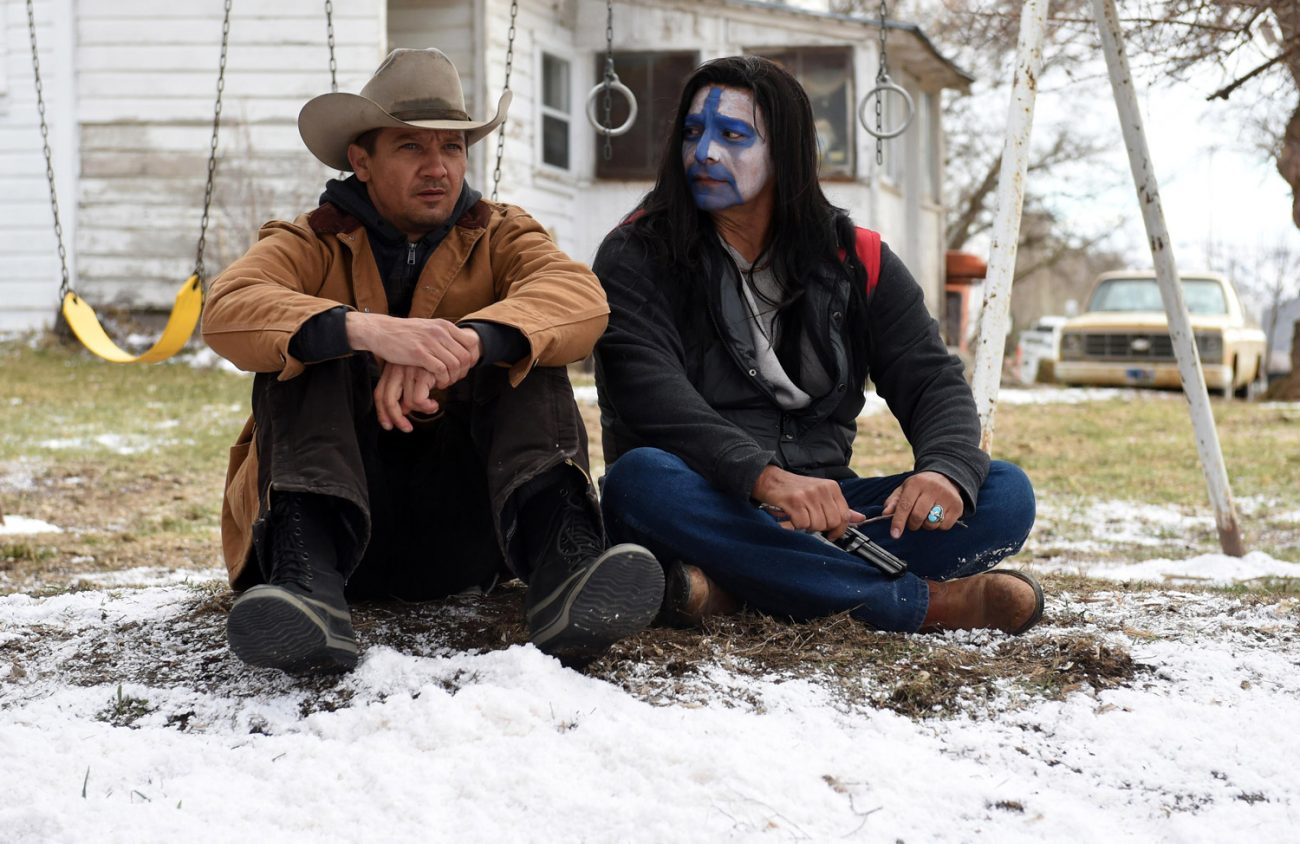My favorite moment in writer-director Taylor Sheridan’s new thriller Wind River comes at the very end of the film. Cory Lambert (Jeremy Renner), a Fish and Wildlife tracker who’s assisted the FBI in a rape and homicide investigation, comes to visit his friend Martin (Gil Birmingham), the grieving father of the Native American teenager discovered by Lambert at the start of the film lying bloodied and frozen in the snowy Wyoming tundra.
Martin is sitting in a lotus position, facing the snowy expanse that stretches out to the horizon from his home on the reservation. As Lambert slowly approaches, he sees that his friend’s face is painted in a swirly design of blue and white. He sits beside him quietly.
What’s up with the face paint? Martin tells him it’s his “death mask.” Then he confesses, with a kind of resigned exasperation, that he “made it up,” and he needs to wash it off so he can go pick up his son from jail.
It’s a sublime moment, at once funny and complexly melancholy, and it points to the better angels that often guide this excellent but flawed film. After years of Indian stereotypes in Hollywood — of both the grotesquely racist and idiotically romanticized variety — the admittedly made-up hoodoo of Martin’s ritual is a refreshing bit of raw humanity, and a nod to the perpetual unease and vulnerability with which we reckon our violent and desecrated past.
Wind River is Sheridan’s directorial debut, and it’s a welcome one. As the screenwriter for two of the better thrillers in recent memory, last year’s Hell or High Water and 2015’s Sicario, he’s proven himself capable of balancing socio-political commentary with the more subtle and intimate rhythms of gritty human drama.
Violent crime thrillers that focus on social ills are tricky, and Sheridan isn’t completely immune to those tendentious quirks that seem to take the audience by the nose and lead it into easy indignation. At its weakest, Wind River panders to our expectations that good be all good and evil be all evil, with no brokering complications. This is amplified by Renner’s character, a kind of outback Wyoming guru who speaks in gnostic truisms about suffering and fate.
Renner is a solid actor, but I spent half the film wanting desperately to bop him in the nose; as the hero, he’s perfect to the point of being unlikable, uncomplicated by the psychic darkness that make Eastwood and Bogart so fantastically compelling on screen.
Fortunately, Sheridan does so much right in this film that he overcomes his own twee profundities. Set in the barren vastness of Wyoming, the movie conjures an atmosphere that is at once expansive and hypnotic, its dire beauty threatened at every moment by explosive violence, which it delivers in shocking jolts.
As Jane Banner, the lone FBI agent called in after the body of the Native woman is discovered, Elizabeth Olsen is a total surprise; Banner, an agent from Florida, is completely out of her element in this cruel and snowbound landscape, and yet she’s immediately outraged by the erasure of this crime. Olsen balances such indignation with a sense of desperate sadness always veering toward futility. It’s a great performance, and it anchors this film in a tragic sensibility it might otherwise lack. (Cinemark 17, Regal Valley River)
